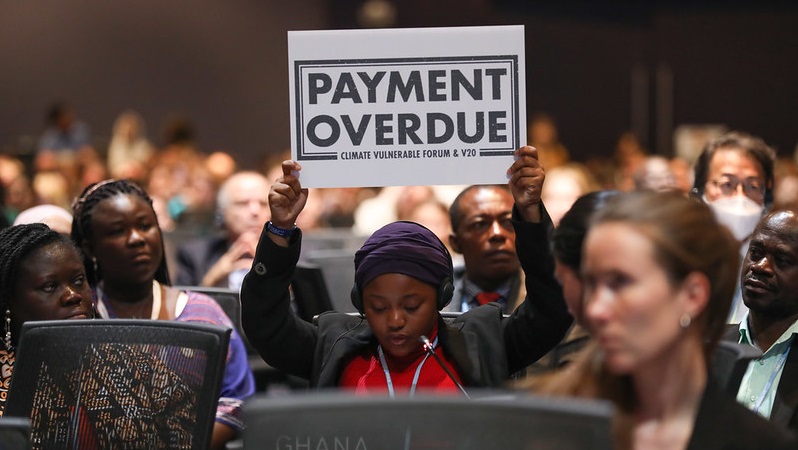Glimmers of hope: your personal finance diary January-April 2024 | Consumer affairs

As the new year begins, the cost of living crisis drags on. The Bank of England base rate is 1.75 percentage points higher than it was a year ago, and typical energy bills are hovering around the £2,000 mark. But there are some glimmers of hope: mortgage rates have started to fall, and from this week employees will see a little more in their pay packets. Here are some dates that could make a difference to your personal finances in the first part of 2024:
January
1st The new price cap for gas and electricity comes into force in Great Britain. Ofgem’s limit on the cost of energy is now reset every three months and it has gone up by 5% on the last quarter. The cost of energy for a home with typical consumption – 11,500 kWh of gas and 2,700 kWh of electricity a year – is now capped at £1,928 a year for direct debit customers, £1,960 for prepayment households and £2,058 for those who pay when they get their bill. That’s lower than this time last year, but there is no government help for most households this winter.
Digital platforms including Airbnb and eBay are starting to collect data on sellers to share with HMRC, as part of global rules to reduce tax avoidance. The data on sellers’ profits will be handed over in January 2025. Traders who have been using the sites for business and not declaring their income could find themselves with large tax bills in future.
VAT on period pants has been removed to bring them in line with sanitary towels and tampons. The tax is 20% so consumers can expect prices to go down by about 17%. A Marks & Spencer pack of three pairs, which usually sells for £20, should cost about £3.30 less.
2nd Applications open for the new free childcare offer for England. From April, working parents of two-year-olds should be able to access 15 hours’ free childcare a week, extending the current offer for three- and four-year-olds. To qualify, parents who individually earn more than £8,670 but less than £100,000 a year are eligible. From September, the government has said the 15 hours will be extended down to the age of nine months.
6th National insurance contributions for employees are cut. The main rate of NICs paid by workers goes down from 12% to 10% as announced in November’s autumn statement. The class 1 contributions are made on earnings received by anyone between the age of 16 and state pension age. The Treasury says the change means an average worker earning £35,400 will take home about £450 more in the 2024-25 tax year. An employee earning £50,000 a year will pay £3,743.00 in national insurance after the change, saving £748.60.
17th Inflation figures for December are published. With retailers cutting prices ahead of Christmas, the headline rate could be down again from the 3.9% recorded in November.
31st The deadline for filing self-assessment forms for 2022-23 online. HMRC closed its self-assessment helplines last summer and although they are open again it is advising people to go online for information if they can. If you think your return could be complex, you would be well advised to start early in case you need to call.
Various dates starting this month: mortgage borrowers who took up the chance to move on to interest-only to make their monthly repayments more affordable will start to come to the end of the original six-month period lenders were told to offer. What happens next is likely to depend on individual cases, with lenders contacting them to discuss their options.
February
1st The Bank of England’s first interest rate decision of the year. Rates have been held at the last three meetings and the money markets are expecting any move to be downwards. With the next set of GDP figures not due until the middle of the month, the Bank may hold fire this time.
15th GDP figures for October to December are published. The last set showed that the UK economy had shrunk, so another set of negative numbers would mean the UK would be considered to be in recession. This might prompt the Bank to consider rate cuts in a bid to stimulate growth.
16th-23rd The final cost of living payment goes out. The payments from the government have been made to low-income households in England, Scotland and Wales to help offset rising prices. The final payment, of £299, will be paid automatically to those who received qualifying benefits between 13 November and 12 December 2023.
March
6th Budget day. The possibility of a spring election hangs in the air, which would make the budget a key opportunity for the Conservatives to lay out their big plans to attract voters. Reports suggest that this could include a scheme to help first-time buyers and changes to inheritance tax.
after newsletter promotion
23rd The Bank of England announces its next interest rate decision. Some economists have already predicted that it will be a cut – and that more will follow. Borrowers will be hopeful that they’re right, although, currently, a return to basement level rates seems to be unlikely.
Sometime this month: council tax bills for 2024-25 should be finalised and announced.
April
1st The next change in the energy price cap is due to take effect. Experts at Cornwall Insight have suggested that Ofgem’s limit on prices will fall by 14% at this point, taking the average direct debit price to £1,660 a year. At the same time, the premium paid by prepayment customers is due to be scrapped. Those who pay after their bill has arrived will still pay more.
The price of a TV licence will rise by £10.50 to £169.50 a year. Water bills may go up too: the details are usually announced in February. Several water companies have been ordered to repay £114m to customers because progress on leakage and sewage spills has been “too slow”, so this will offset some of the increase.
6th The new tax year starts. Personal allowances have been frozen again, so more earners will be dragged into the tax net or pay a greater proportion of tax at the higher rate as they see pay rises come into force.
The “national living wage” will go up to £11.44 an hour and eligibility for the full amount will be reduced from age 23 to age 21. Younger workers will get £8.60 an hour.
The NICs changes for the self-employed are introduced the same day. These workers will no longer have to pay class 2 contributions, and the main rate on class 4 contributions will be reduced to 8%. Announcing the changes in the autumn statement, the chancellor said they would save a self-employed person with profits of £28,200 a total of £350 in 2024-25.
Most inflation-linked state benefits will rise by 6.7%, while the state pension will go up by 8.5%, in line with average earnings, as guaranteed by the triple lock. The new state pension will be worth £221.20 a week.
link







